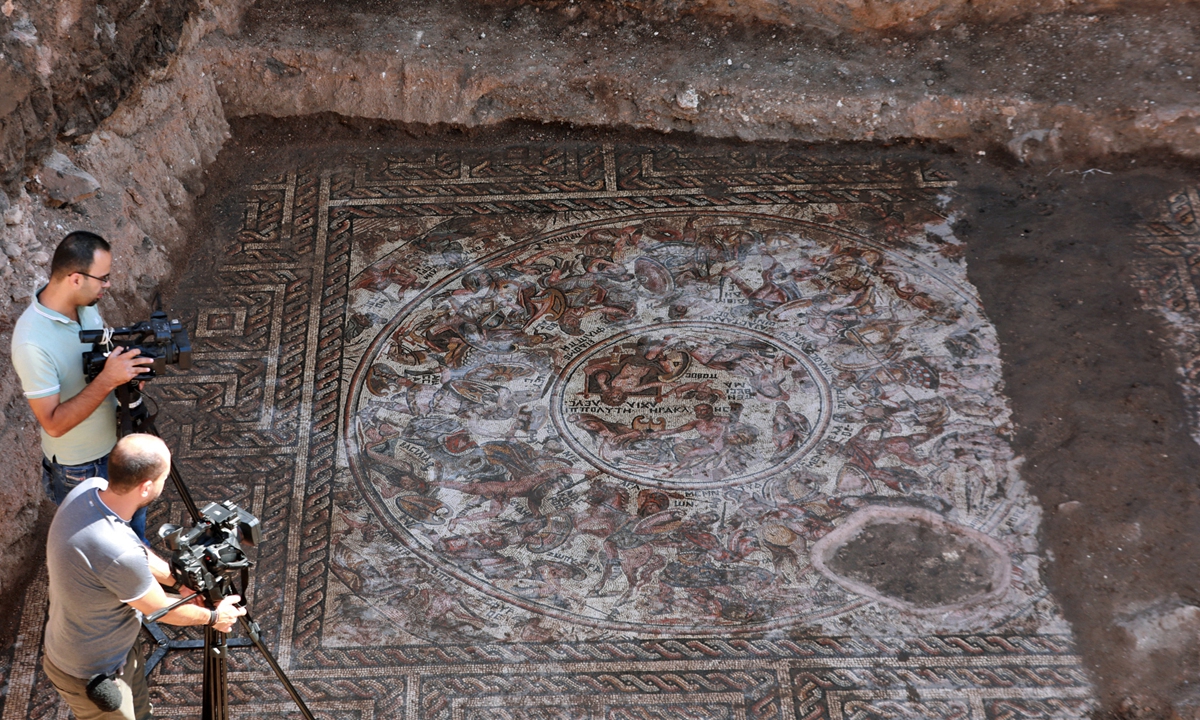
Photographers take pictures of a mosaic floor dating to the Roman era being excavated in the city of Al-Rastan in Syria’s west-central province of Homs on October 12, 2022, after its discovery was announced by Syria’s General Directorate of Antiquities. Photo: AFP
Researchers in the northern Gaza Strip have unearthed dozens of Roman-era tombs at a site discovered earlier in 2022 during construction work, the Palestinian enclave's Islamist rulers Hamas announced Monday.
Construction workers had uncovered 31 tombs near the town of Beit Lahia as work began in early 2022 on an Egyptian-funded residential project, part of reconstruction efforts after the 11-day war in May 2021 between Israel and armed groups in blockaded Gaza.
The project has been partially suspended following the discovery, and a team from the local antiquities ministry visited the site to catalogue the findings and look for more, Fazl al-Atal, head of the excavation team, told AFP on Monday.
"So far, 51 Roman tombs dating from the first century AD have been found," including the 31 initially found by the construction workers, he said.
"We expect to find 75 to 80 tombs in total," Atal added, hailing the discovery of the "first complete Roman-era cemetery found in Gaza."
The 2,000-year-old burial site is located near the ruins of the Greek port of Anthedon, on the road leading to ancient Ascalon - now the Israeli city of Ashkelon by the Gaza border.
The antiquity ministry team has been focusing on "documentation, research and protection of the site," Atal said. "Our aim is to ascertain... the causes of death."
Jamal Abu Reda, in charge of antiquities at the ministry, said the site is "of great importance and believed to be an extension of the site" of ancient Anthedon. Archaeology is a highly political subject in Israel and the Palestinian territories, and some discoveries have been used to justify the territorial claims of each people.
In Gaza, both research and tourism to archaeological sites are limited due to an Israeli blockade imposed since Hamas took over the strip in 2007. Researchers in the strip unveiled in September Byzantine mosaics dating from the 5th to 7th centuries.
